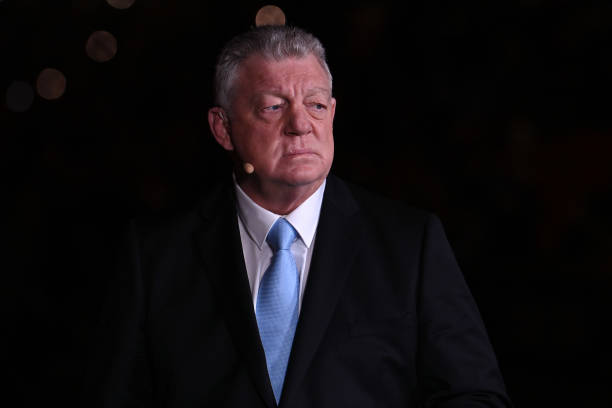In a dramatic turn of events, former Canterbury Bulldogs player Jackson Topine has made a significant $4 million claim against his former club, raising eyebrows and sparking concern throughout the realm of professional sport in Australia. The Bulldogs have responded by pledging to contest the allegations vigorously, setting the stage for a potentially contentious legal battle.
Jackson Topine’s allegations cast a shadow over the integrity and management of professional sports organizations, prompting questions about the treatment of athletes and the duty of care owed to them by their employers. With the spotlight now firmly on the Bulldogs, the broader implications of this case extend far beyond the confines of the rugby league field.
The claims made by Topine highlight the growing scrutiny surrounding player welfare and contractual agreements within the sporting industry. Jessica Halloran, a respected journalist from The Australian, weighed in on the matter, emphasizing the significance of this case in shaping the future of Australian sport.
“The allegations raised by Jackson Topine underscore the importance of accountability and transparency within professional sports organizations,” stated Halloran. “This case has the potential to serve as a catalyst for much-needed reforms in how athletes are treated and compensated.”
Indeed, the outcome of this legal battle could set a precedent for how similar claims are handled in the future, influencing the relationship between players and clubs across various sporting codes. It also raises questions about the adequacy of existing measures in place to protect the rights and well-being of athletes, prompting calls for greater oversight and regulation within the industry.
The Bulldogs’ decision to contest the $4 million claim reflects the high stakes involved in this case, as well as their commitment to defending their reputation and financial interests. However, regardless of the eventual outcome, the impact of Topine’s allegations has already reverberated throughout the sporting community, sparking debate and prompting soul-searching about the state of player welfare in Australia.
As this legal saga unfolds, all eyes will be on the courtroom as the parties involved present their arguments and evidence. The verdict, whatever it may be, will undoubtedly shape the future landscape of Australian sport, leaving a lasting imprint on how players are treated, compensated, and protected by their employers.
In conclusion, Jackson Topine’s $4 million claim against the Canterbury Bulldogs has thrust issues of player welfare and contractual disputes into the spotlight, sparking a broader conversation about accountability and transparency within Australian sport. With the outcome of this case poised to influence future practices and regulations, the implications for athletes, clubs, and the sporting industry as a whole are profound and far-reaching.

